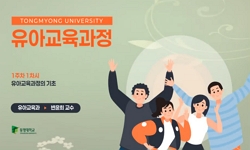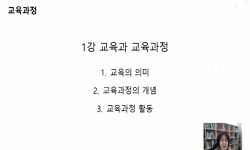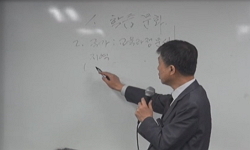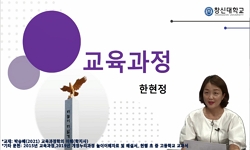본 연구에서는 미래사회 과학기술인재들의 핵심역량을 확인하고, 이를 길러주기 위한 교육과정 운영 방향을 설정하기 위해 영재학교 재학생과 졸업생을 지도하는 교사 164명, 이공계 대학교...
http://chineseinput.net/에서 pinyin(병음)방식으로 중국어를 변환할 수 있습니다.
변환된 중국어를 복사하여 사용하시면 됩니다.
- 中文 을 입력하시려면 zhongwen을 입력하시고 space를누르시면됩니다.
- 北京 을 입력하시려면 beijing을 입력하시고 space를 누르시면 됩니다.
https://www.riss.kr/link?id=A107988162
- 저자
- 발행기관
- 학술지명
- 권호사항
-
발행연도
2021
-
작성언어
Korean
- 주제어
-
등재정보
KCI등재
-
자료형태
학술저널
- 발행기관 URL
-
수록면
477-498(22쪽)
-
KCI 피인용횟수
0
- DOI식별코드
- 제공처
-
0
상세조회 -
0
다운로드
부가정보
국문 초록 (Abstract)
본 연구에서는 미래사회 과학기술인재들의 핵심역량을 확인하고, 이를 길러주기 위한 교육과정 운영 방향을 설정하기 위해 영재학교 재학생과 졸업생을 지도하는 교사 164명, 이공계 대학교수 33명을 대상으로 핵심역량 및 교육과정에 대한 Borich 요구도 및 The locus for focus model의 요구도 분석을 실시했다. 그 결과, 미래사회 인재의 핵심역량으로 창의적 문제해결력과 함께 사회심리적 기술(열정, 끈기, 회복탄력성, 소통능력)과 사회적 책무성(리더십, 시민의식)과 윤리의식(비판적 사고능력)이 요구됨을 확인하였다. 또한 이러한 역량을 길러주기 위한 교육과정 운영 방안으로 복잡한 문제를 해결하기 위해 학제적 접근을 넘어 학제간 통합적 접근이 강화되어야 하며, 해당 학문분야의 학문하는 방법을 경험할 수 있는 연구, 멘토링 등이 확대될 필요가 있음을 제시하였다.
다국어 초록 (Multilingual Abstract)
Purpose of this study was to identify core competencies needed for future STEM talented students from 8 specialized national-level residential science high schools (SNRSHS) in Korea and corresponding curriculum needs to develop these core competencies...
Purpose of this study was to identify core competencies needed for future STEM talented students from 8 specialized national-level residential science high schools (SNRSHS) in Korea and corresponding curriculum needs to develop these core competencies. Future society changes rapidly. Priorities for core competencies needed to solve these future problems and corresponding curriculum are explored. Borich priority determination formula and Locus for Focus Model were used to determine the priority of needs using survey data of 164 SNRSHS teachers and 33 college professors who teach SNRSHS graduates. The results indicated that the priority of needs for developing core competencies was in the order of developing creative problem-solving ability, social psychological skills (passion, persistence, resilience, and communication skills), sense of social responsibility (leadership, citizenship) and ethics (critical thinking). It was also found that to facilitate the development of these core competencies, curriculum for future students at SNRSHS should strengthen interdisciplinary and integrated approach and students should be provided with expanded mentoring and research opportunities in the related academic fields.
목차 (Table of Contents)
- Ⅰ. 서론
- Ⅱ. 이론적 배경
- Ⅲ. 연구방법
- Ⅳ. 연구결과
- Ⅴ. 논의 및 결론
- Ⅰ. 서론
- Ⅱ. 이론적 배경
- Ⅲ. 연구방법
- Ⅳ. 연구결과
- Ⅴ. 논의 및 결론
- 참고문헌
- Abstract
참고문헌 (Reference)
1 김종헌, "핵심역량 평가 기반 수업에 대한 과학영재학생들의 정서적 반응" 학습자중심교과교육학회 18 (18): 225-246, 2018
2 노현아, "학교와 과학영재교육원에서의 과학영재들의 대인관계역량 분석" 한국과학교육학회 37 (37): 383-393, 2017
3 클라우스 슈밥, "클라우스 슈밥의 제4차 산업혁명" 새로운 현재 2016
4 이재분, "초・중등 영재학급 및 영재교육원의 융합인재교육(STEAM) 적용 방안 연구" 한국교육개발원 2012
5 이재분, "청장년시기(15세~45세) 과학기술인재 발달 및 육성 종합 전략 연구 Ⅲ: 과학고등학교 및 영재학교의 STEAM 교육 발전방안 연구" 한국교육개발원 2011
6 김회용, "철학적 탐구공동체 활동에 기반한 영재리더십 프로그램 효과 연구" 한국교육사상학회 23 (23): 1-24, 2009
7 김주아, "재능계발 관점에서 본 우리나라 생애주기별 과학 영재교육의 기여와 문제점" 한국영재학회 30 (30): 457-486, 2020
8 김주아, "융합교육과정 개발에 대한 숙의 : 과학예술영재학교 교육과정 개발 과정을 중심으로" 한국교육과정학회 32 (32): 47-75, 2014
9 김주아, "영재학교 발전방안 연구" 한국교육개발원 2019
10 박재진, "역량 중심의 과학 영재 교육을 위한 과학자의 핵심 역량 모델 개발 및 타당화" 한국영재학회 24 (24): 509-541, 2014
1 김종헌, "핵심역량 평가 기반 수업에 대한 과학영재학생들의 정서적 반응" 학습자중심교과교육학회 18 (18): 225-246, 2018
2 노현아, "학교와 과학영재교육원에서의 과학영재들의 대인관계역량 분석" 한국과학교육학회 37 (37): 383-393, 2017
3 클라우스 슈밥, "클라우스 슈밥의 제4차 산업혁명" 새로운 현재 2016
4 이재분, "초・중등 영재학급 및 영재교육원의 융합인재교육(STEAM) 적용 방안 연구" 한국교육개발원 2012
5 이재분, "청장년시기(15세~45세) 과학기술인재 발달 및 육성 종합 전략 연구 Ⅲ: 과학고등학교 및 영재학교의 STEAM 교육 발전방안 연구" 한국교육개발원 2011
6 김회용, "철학적 탐구공동체 활동에 기반한 영재리더십 프로그램 효과 연구" 한국교육사상학회 23 (23): 1-24, 2009
7 김주아, "재능계발 관점에서 본 우리나라 생애주기별 과학 영재교육의 기여와 문제점" 한국영재학회 30 (30): 457-486, 2020
8 김주아, "융합교육과정 개발에 대한 숙의 : 과학예술영재학교 교육과정 개발 과정을 중심으로" 한국교육과정학회 32 (32): 47-75, 2014
9 김주아, "영재학교 발전방안 연구" 한국교육개발원 2019
10 박재진, "역량 중심의 과학 영재 교육을 위한 과학자의 핵심 역량 모델 개발 및 타당화" 한국영재학회 24 (24): 509-541, 2014
11 박경빈, "미래사회 영재의 창의·인성 교육을 위한 예비 연구 - 현장 영재교사의 인식 중심으로" 한국영재학회 20 (20): 681-701, 2010
12 한국교육개발원, "국가창의인재통계" 2020
13 김환남, "과학영재에게 요구되는 핵심역량에 대한 교사와 학생 인식" 한국과학교육학회 32 (32): 1241-1250, 2012
14 이지원, "과학영재를 위한 연구윤리교육 및 윤리적 연구환경조성의 현황과 이에 대한 영재담당 교사들의 인식 조사" 한국과학교육학회 38 (38): 853-864, 2018
15 Sternberg, R. J., "Transformational giftedness : Rethinking our paradigm for gifted education" 42 (42): 230-240, 2020
16 Olszewski-Kubilius, P., "Talent development as a framework for gifted education" 38 (38): 49-59, 2015
17 Bruce-Davis, M., "STEM High School Administrators’, Teachers’, and Students’ Perceptions of Curricular and Instructional Strategies and Practices" 25 (25): 272-306, 2014
18 Renzulli, J. S., "Reexamining the role of gifted education and talent development for the 21st century : A four-part theoretical approach" 56 (56): 150-159, 2012
19 Stevenson, D. H., "PM critical competency index : IT execs prefer soft skills" 28 : 663-671, 2010
20 Renzulli, J. S., "Operation Houndstooth Intervention Theory : Social capital in today’s schools" 29 (29): 15-24, 2006
21 Fischman, W., "Implementing good work program : helping students to become ethical workers" 37 (37): 74-79, 2009
22 Gardner, H., "Five minds for the future" Harvard Business School Press 2007
23 Maker, C. J., "Exceptional talent in the 21st century context : conceptional framework, definition, assessment, and development" 37 (37): 158-198, 2021
24 Rychen, D. S., "Defining and selecting key competencies" Hogrefe & Huber Publishers 2001
25 Subtonik, R. F., "Creativity in mathematics and the education of gifted students" Sense Publications 165-180, 2009
26 OECD, "Conceptual learning frameworks for 2030 : Transformative competencies for 2030"
27 Olszewski-Kubilius, P., "Aiming talent development toward creative eminence in the 21st century" 38 (38): 140-152, 2016
28 Trilling, B., "21st century skills : Learning for life in our times" Jossey-Bass 2009
동일학술지(권/호) 다른 논문
-
과학영재 이공계 여자 대학(원)생의 학교환경과 진로에 대한 인식
- 한국영재학회
- 류지영(Jiyoung Ryu)
- 2021
- KCI등재
-
SW영재학급 학생들의 내·외적 학습동기에 따른 SW진로 성향 분석
- 한국영재학회
- 이재호(Jaeho Lee)
- 2021
- KCI등재
-
생명과학 연구의 딜레마 상황에서 과학영재와 일반학생의 윤리적 판단력 비교
- 한국영재학회
- 이지원(Jiwon Lee)
- 2021
- KCI등재
-
‘소음 차단 물질 찾기’ 프로젝트 학습에서 Flow Chart 활용을 통한 초등영재학생의 실험설계 표상: 비대면 상황을 중심으로
- 한국영재학회
- 강은주(Eunju Kang)
- 2021
- KCI등재
분석정보
인용정보 인용지수 설명보기
학술지 이력
| 연월일 | 이력구분 | 이력상세 | 등재구분 |
|---|---|---|---|
| 2022 | 평가예정 | 재인증평가 신청대상 (재인증) | |
| 2019-01-01 | 평가 | 등재학술지 유지 (계속평가) |  |
| 2016-01-01 | 평가 | 등재학술지 유지 (계속평가) |  |
| 2012-01-01 | 평가 | 등재학술지 유지 (등재유지) |  |
| 2009-01-01 | 평가 | 등재학술지 선정 (등재후보2차) |  |
| 2008-01-01 | 평가 | 등재후보 1차 PASS (등재후보1차) |  |
| 2006-01-01 | 평가 | 등재후보학술지 선정 (신규평가) |  |
학술지 인용정보
| 기준연도 | WOS-KCI 통합IF(2년) | KCIF(2년) | KCIF(3년) |
|---|---|---|---|
| 2016 | 1.47 | 1.47 | 1.26 |
| KCIF(4년) | KCIF(5년) | 중심성지수(3년) | 즉시성지수 |
| 1.29 | 1.29 | 1.961 | 0.28 |




 KCI
KCI DBpia
DBpia






